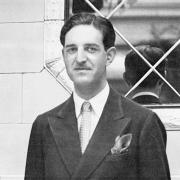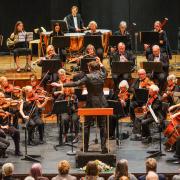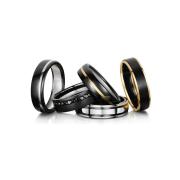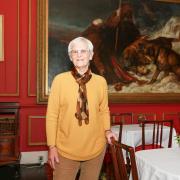Tucked away in a sedate side street, just yards from the hustle and bustle of a city centre is a haven where tradition, history, good food, conversation and friendship are the order of the day
Tucked away in a sedate side street, just yards from the hustle and bustle of a city centre is a haven where tradition, history, good food, conversation and friendship are the order of the day
The Athenaeum is Liverpool’s very own port in a storm, an escape from the hurly burly of life. Few of the office workers and shoppers who pass by its imposing yet discreet entrance stop to look up at the carved stone statue of a Greek goddess that signals its presence.
Pass through reception, where you are greeted by smiling staff, and you are in a world that at one time would have been reserved for the very cream of the city’s elite. The Athenaeum, a gentlemen’s club, has been at the heart of Liverpool life since it was founded in 1797.
In appearance it lives up to all your expectations of a gentlemen’s club. From the moment you enter you could be forgiven for thinking that this is a place where in some ways time has stood still. Even the marvellous old lift could have come straight out of the TV series Are You Being Served?
The other way of getting to the club rooms is the spiral staircase, which is of the grandest and most elegant order as it sweeps up through the centre of the building, adorned by pictures of Prime Ministers. By the steps leading to the staircase is a plaque to the Liverpool Scottish Regiment with the motto ‘They win or die who wear the rose of Lancashire’.
Either by lift or staircase, members invariably gather in the splendid Newsroom, so elegant yet cosy, where they can read the day’s papers and order a drink at the bar. The Newsroom is so typical of a gentlemen’s club that it could have come out of a film set - and indeed the club has been used by TV companies for period productions.
The Athenaeum, situated in Church Alley, has the happy knack of combining the best of the old with the march of progress. It may be a gentlemen’s club - actually now usually described as a private members’ club - but since 1995 women have had equal access to full membership and lady presidents have been elected twice.
One of those former presidents, Hilary Gatenby, said: ‘I was always made to feel welcome here. Our membership is diverse and open to new ideas.
The club is a place of fellowship where people of like minds can gather with respect for those who may have different points of view.’
Current president John Edmondson said: ‘Those who in the past might have opposed women’s involvement with the club were creatures of their time. That has changed and we welcome a wide spectrum of people.’
So how do you become a member? John said: ‘One way is if you know someone who is actually a member and they can introduce you.
‘If not we can arrange an interview where a potential new member can be seen for a chat. It’s all really friendly and not at all an ordeal.
‘It’s an opportunity not just for us to look at them but for them to findout if we’re offering what they think we offer them.’
The Athenaeum does have plenty to offer. It is close to the city’s shops, theatres and galleries and its dining facilities are first class, with a sandwich and deli service also available.
But in recognition of the Greek goddess of wisdom Athena, from whom it takes its name, the Athenaeum also continues the tradition of learning so dear to its founding fathers. There are talks on special subjects often given by members but also by eminent guest speakers who have included actor Neil Pearson and a former head of the Cunard shipping line.
As Hilary says: ‘Sometimes old friends are guest speakers. And members have diverse interests such as the law - several judges are members - medical or shipping. So the subjects are very varied.’
And John Edmondson added: ‘The club is keen to open its doors to the business and professional community. And on Heritage Days, which are a national event, anyone can pop in. Hundreds have come in for guided tours. People who may think it’s not for them actually change their minds and they leave thrilled with what they’ve seen and proud that we’re here.’
But if the term gentlemen’s club conjurers up images of crusty old colonels dozing in leather chairs, glass of port in hand, then think again.
Hilary said: ‘All age groups are welcome. We have older members � who play a vital role and we welcome younger people over the age of 18. The club is not at all stuffy. In fact the emphasis is on friendliness.’
John said: ‘We have lots of different categories of membership. Country members who live a certain distance from Liverpool have a reduced subscription but still enjoy all the benefits apart from voting rights.
Members under 40 enjoy a special membership rate.’John, Hilary and all the members are particularly proud of the Athenaeum library, which is at the very heart of the institution with its vast collection of books and splendid Doric columns. It was once described as ‘one of the finest rooms of the 20th century in this country if not the whole of Europe’.
The library contains 60,000 books, maps and pamphlets which can beused by members and can be available for researchers.
Of all the Athenaeum’s many venerable members past and present, pride of place must go to William Roscoe, a banker, writer and book lover who was a leading opponent of the slave trade. In 1815 Roscoe became bankrupt but fellow club members - many would probably themselves have been in banking or shipping - bought a collection of his favourite books which he had been forced to sell and donated them to the Athenaeum where he was still able to enjoy them,
John Edmondson said: ‘The Athenaeum is a unique slice of the city’s history and still prospers as a private members’ club. Our visitors appreciate the distinctive setting which offers privacy and relaxation.’
The club building or individual rooms can be hired for private events. It has reciprocal membership with many of the top London and overseas clubs, many of which offer accommodation.
Like all vibrant institutions it has been open to and able to adapt to change while retaining its unique charm and there is one addition that John Edmondson would love to see. When the club moved to its current home in 1928 space was left for a roof garden.
John said: ‘It was never actually started - it was just a concept. But I have this dream of one day seeing it bloom. Imagine how lovely it would be to sit there, high above the city, on a summer’s evening among the trees and flowers.’
But to get it started with access to the roof would, John admits, cost a small fortune. So any new member with green fingers and a lot of loose change would be more than welcome.


























